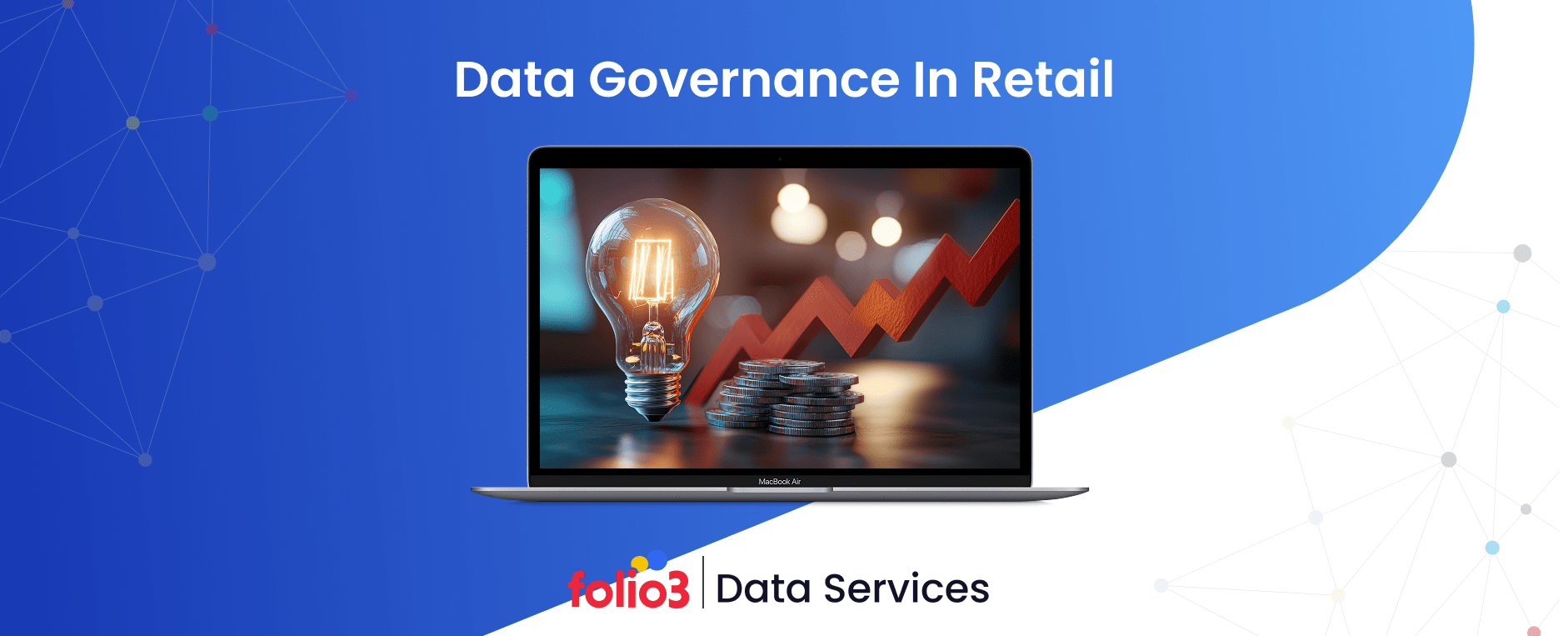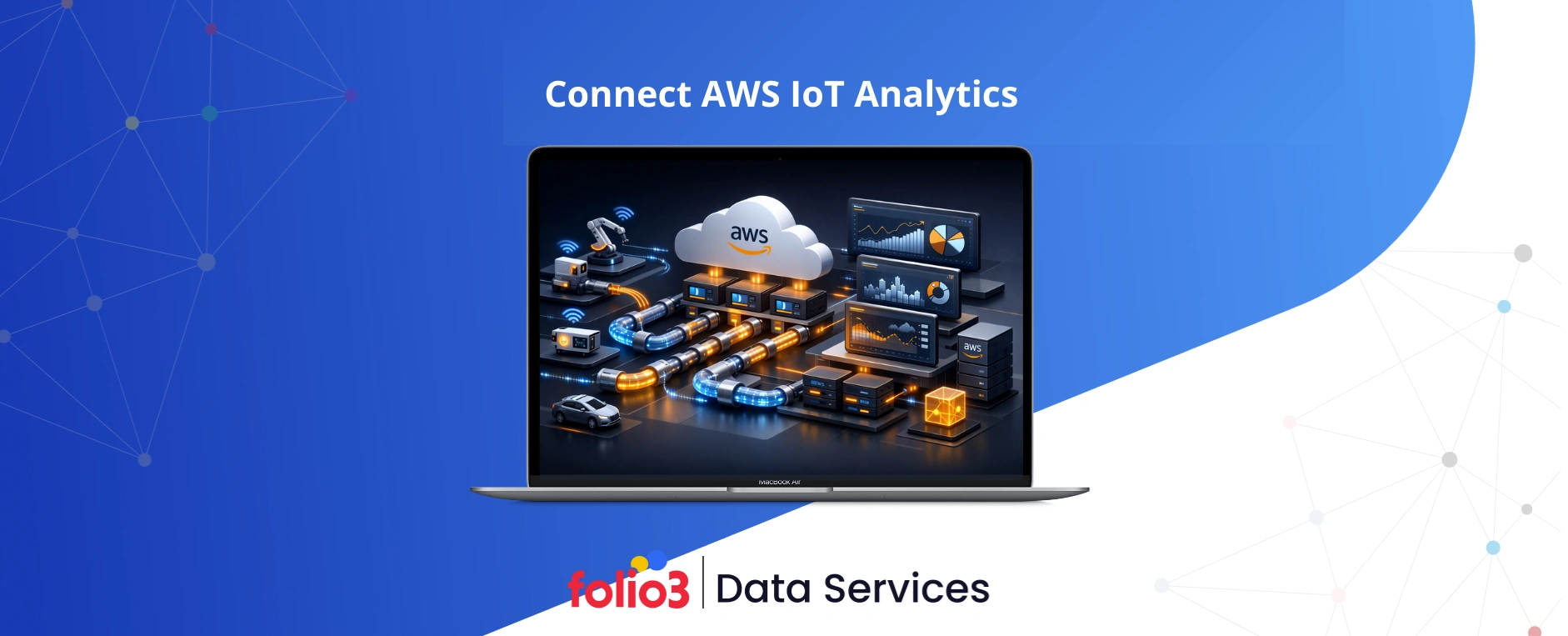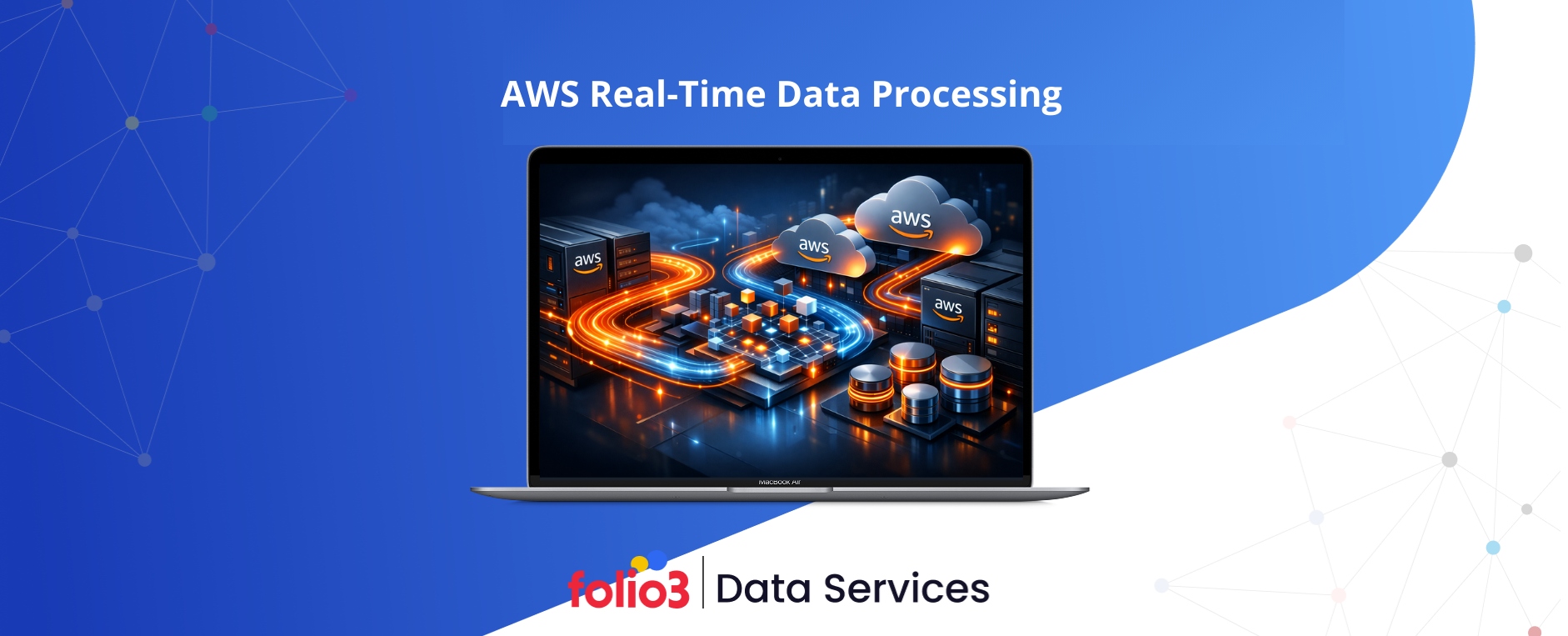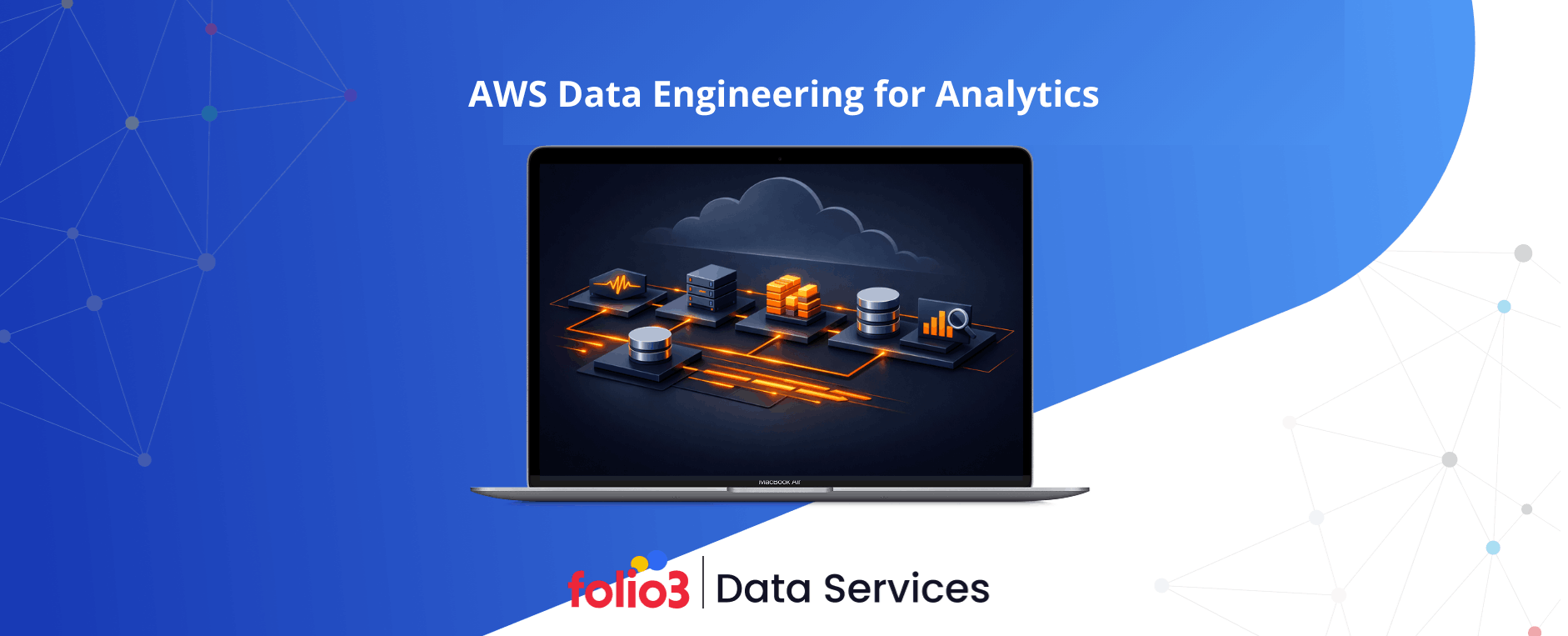Data governance matters more than ever in the retail industry as businesses handle unprecedented volumes of customer information across multiple channels and touchpoints. Modern retail operations collect detailed customer data from online purchases, in-store transactions, mobile applications, loyalty programs, and social media interactions.
These are collected to create complex data ecosystems that require sophisticated management approaches to maintain security, accuracy, and compliance. However, the rise of big data, personalization demands, and regulatory compliance pressures have transformed data governance from an optional IT function to a strategic business imperative.
Retailers must balance the need for comprehensive customer insights with stringent privacy requirements while ensuring data accuracy and accessibility for business operations. Advanced personalization capabilities require unified customer profiles built from diverse data sources, while regulations like GDPR and CCPA mandate strict controls over data collection, processing, and storage.
This comprehensive guide examines how retailers can implement effective data governance frameworks that protect customer information, ensure regulatory compliance, and drive business value through improved data quality and strategic insights.
What is Data Governance in Retail?
Data governance in retail represents a comprehensive framework of policies, procedures, and technologies that ensure customer and business data is managed consistently, securely, and effectively across all organizational functions and channels. This strategic approach establishes clear standards for data collection, processing, storage, and access while maintaining compliance with regulatory requirements and business objectives.
Retail data governance differs from general data management by addressing the unique challenges of commerce operations, including seasonal data patterns, omnichannel customer journeys, inventory fluctuations, and complex supply chain relationships. It also supports the effective use of big data in the retail industry, encompassing customer data from multiple touchpoints, product information across catalogs, financial transactions, and operational metrics that require specialized handling and protection.
Effective retail data governance creates a foundation for strategic decision-making by ensuring that business leaders and analysts can access accurate, timely, and relevant information while maintaining customer trust and regulatory compliance. This framework enables retailers to leverage data assets for competitive advantage while minimizing risks associated with data breaches, compliance violations, and operational inefficiencies.
Data Governance in Retail – What’s Driving the Need?
Multiple converging factors have elevated data governance from a technical consideration to a strategic business priority that directly impacts retail competitiveness and sustainability. Data governance in retail has shifted from being a back-end IT concern to a strategic business necessity.
With customer expectations rising, regulatory pressures intensifying, and omnichannel operations creating vast volumes of data, retailers can no longer afford fragmented or poorly managed data systems.
Studies show that poor data quality costs businesses an average of $12.9 million annually (Gartner), while 85% of consumers lose trust in companies after just one data protection strategy breach (PwC). These figures highlight why robust retail data governance is now central to competitiveness, compliance, and customer trust.
Omnichannel Complexity
Retailers today manage data from brick-and-mortar stores, e-commerce platforms, mobile apps, loyalty programs, and social media. Without proper integration, this creates data silos where one channel’s insights fail to inform another, leading to inconsistent experiences.
An effective data governance framework in retail reconciles customer identities across platforms, standardizes data formats, and ensures accuracy across all touchpoints, critical for seamless omnichannel engagement.
Regulatory Compliance
With regulations like GDPR, CCPA, and CPRA, retailers face stricter requirements for consent management, data processing, and customer rights fulfillment. Non-compliance can result in fines of up to 4% of annual global revenue under GDPR. Strong retail industry data governance enables automated compliance monitoring, audit trails, and consent tracking, helping retailers stay ahead of evolving legal obligations.
Data Quality Challenges
Errors, duplicates, and inconsistent records remain persistent issues in retail data management. Poor quality data undermines analytics, marketing campaigns, and inventory planning, often leading to lost sales and dissatisfied customers. By establishing validation procedures, cleansing mechanisms, and automated monitoring, retail data governance ensures that decisions are powered by reliable, high-quality information.
Rising Personalization Demands
Today’s customers expect retailers to understand their preferences and deliver personalized shopping experiences. Achieving this requires a customer data strategy that combines purchase history, demographics, and behavioral data. A structured data governance framework in retail supports the creation of these master records, enabling relevant recommendations, personalized promotions, and stronger customer relationships.
Escalating Security Risks
Retailers handle sensitive data such as payment credentials, addresses, and personal identifiers, making them prime targets for cyberattacks. IBM’s 2024 Cost of a Data Breach Report revealed that the average cost of a retail breach is $4.88 million. Comprehensive retail industry data governance provides encryption standards, access controls, and real-time monitoring to protect this informationM while maintaining operational efficiency and customer trust.
Key Components of Data Governance in Retail
Implementing an effective data governance strategy in retail requires a combination of interconnected components that ensure accuracy, security, and consistency across the entire data lifecycle. These elements form the foundation of retail data governance, enabling organizations to manage customer, product, and operational data responsibly while driving better decision-making.
1. Data Quality Management
High-quality data is at the core of retail industry data management. Data quality management establishes standards and monitoring systems to ensure accuracy, completeness, and consistency across all retail channels. Automated validation rules check information at the point of entry, while data transformation techniques resolve issues such as duplicate customer profiles, incomplete product details, and inconsistent formats. Reliable, standardized data strengthens analytics, reduces errors, and supports informed decisions.
2. Data Security & Privacy
In the retail industry, protecting customer information is critical. Robust security and privacy frameworks use role-based access, encryption protocols, and monitoring systems to safeguard sensitive data. Compliance with regulations like GDPR and CCPA is enforced through consent management, retention policies, and audit trails. Effective retail data governance ensures retailers can leverage customer data while maintaining trust and regulatory compliance.
3. Master Data Management (MDM)
Retail data engineering relies on Master Data Management (MDM) to create a single source of truth for core business entities like customers, products, suppliers, and locations. MDM resolves identity conflicts, consolidates duplicate records, and ensures consistency across all systems. For the retail industry, MDM supports customer identity resolution across multiple touchpoints, accurate product catalog management, and consistent supplier data for stronger procurement and supply chain performance.
4. Metadata Management
Metadata management documents and organizes data assets, helping business users discover, understand, and utilize them effectively. Features such as data analytics framework, lineage tracking, and impact analysis allow organizations to maintain transparency while meeting compliance requirements.
In retail industry data governance, metadata ensures that self-service analytics are reliable, traceable, and aligned with business objectives.
5. Policies & Standards
Strong data governance in the retail industry depends on policies and standards that guide data collection, processing, storage, and access. These frameworks establish classification rules for sensitive information, enforce retention policies, and ensure secure yet accessible data use. Consistent governance policies enable scalability, adaptability to new technologies, and compliance with evolving regulations.
Business Benefits of Data Governance in Retail
Implementing a strong data governance framework in retail delivers measurable business value by enhancing data quality, improving compliance, and driving customer-centric strategies. Below are the key benefits of retail data governance:
1. Improved Data Accuracy
Comprehensive retail data management practices such as automated validation, standardization, and monitoring significantly reduce errors and inconsistencies. Retailers adopting robust governance often achieve improvements in data accuracy, which in turn produces more reliable data analytics stats, enabling advanced machine learning and better customer experiences while minimizing manual corrections.
2. Regulatory Compliance
With rising privacy requirements, data governance in the retail industry ensures compliance with regulations like GDPR and CCPA. Automated controls, policies, and audit trails reduce legal risks while streamlining regulatory reporting. Strong compliance frameworks allow retailers to use customer data responsibly while maintaining trust.
3. Better Decision-Making
High-quality, accessible data empowers leaders to make informed decisions about customer behavior, operations, and market trends. Strong retail industry data governance supports self-service business intelligence, reducing dependency on IT teams and accelerating insight generation. This leads to smarter strategies, operational efficiency, and stronger competitive positioning.
4. Smooth and Managed Operations
Effective retail industry data management eliminates silos, standardizes processes, and automates workflows. This reduces human error, lowers operational costs, and enables faster responses to customer needs. By streamlining data handling, retailers improve agility and free staff for higher-value tasks that drive business growth, while laying the groundwork for retail data monetization initiatives that turn well-governed information into new revenue opportunities.
5. Risk Reduction
A structured data governance framework in retail minimizes risks tied to breaches, compliance violations, and poor decision-making. Proactive monitoring, alerts, and incident response ensure quick issue resolution, protecting financial performance, brand reputation, and customer trust.
Folio3 connects data governance with a modern analytics framework, empowering faster, smarter retail decisions.
Maintaining unified retail customer data across channels further reduces the likelihood of errors or inconsistencies that could lead to compliance issues or inaccurate insights.
6. Enhanced Customer Insights
Unified, high-quality customer data unlocks powerful insights into shopping behavior, preferences, and future needs. With stronger predictive analytics techniques, retailers can deliver personalization, refine marketing campaigns, optimize inventory, and increase customer loyalty and lifetime value.
Common Challenges in Retail Data Governance Implementation
Implementing data governance in retail is essential for accuracy, compliance, and efficiency, but it often faces predictable obstacles. Addressing these challenges requires careful planning, cultural alignment, and modern technology adoption.
1. Fragmented Data Sources
Retail businesses rely on multiple systems like POS, e-commerce, CRM, and supply chain tools, that create silos and complicate retail data management. Legacy platforms with proprietary formats add further complexity. Overcoming fragmentation often requires phased integration supported by middleware and modern data integration techniques, ensuring smooth governance without disrupting core operations.
2. Organization-Wide Adoption
Effective retail industry data governance depends on adoption across all departments. Resistance often arises from employees used to legacy processes. Change management programs that include executive sponsorship, training, and incentives help drive cultural alignment. Partnering with retail analytics consulting teams can further demonstrate immediate business value, accelerating adoption and ensuring long-term success.
3. Balancing Access and Security
Retailers must balance accessibility for analytics with strict data protection requirements. Overly restrictive controls can limit usability, while weak safeguards risk compliance violations and breaches.
Partnering with experienced data engineering service providers can help design role-based access controls, risk-based classification, and automated monitoring that enable secure yet practical retail data governance frameworks.
4. Scaling Real-Time Analytics
The retail industry increasingly depends on real-time insights for personalization and demand forecasting. Traditional governance models, designed for batch processing, often struggle with high-velocity data streams. Cloud-native architectures and streaming data pipelines help scale retail industry data management, enabling real-time governance controls without sacrificing performance.
Retail Data Governance – Proven Best Practices
Implementing data governance in retail successfully requires structured practices that ensure accountability, stakeholder adoption, and long-term scalability. The following best practices form the foundation of sustainable retail data governance frameworks.
1. Establish a Governance Framework
A strong data governance framework in retail should define policies, standards, and procedures for managing customer, product, and operational data. Frameworks must align with business goals and regulatory mandates (e.g., GDPR, CCPA) while involving stakeholders across all departments to ensure relevance. Regular reviews keep frameworks current as technologies and business needs evolve.
2. Define Roles & Responsibilities
Clear role assignment is critical for effective retail industry data governance.
- Data Stewards: Manage day-to-day quality, compliance, and user support.
- Data Owners: Make strategic decisions on data use and alignment with business objectives.
- Data Custodians: Implement technical safeguards, systems, and controls.
Role clarity ensures accountability and eliminates governance gaps.
3. Implement Data Catalogs & Lineage
Retailers should deploy metadata management tools such as data catalogs and lineage tracking. Catalogs improve data discovery for business users, while lineage documents transformations and system flows for compliance, impact analysis, and troubleshooting. Together, they enable self-service analytics while maintaining data accuracy and transparency.
4. Conduct Regular Audits
Ongoing audits validate the effectiveness of retail data management policies. Regular checks identify gaps in quality, security, or compliance before they escalate into risks. Audit findings also guide continuous improvement and demonstrate accountability to regulators and stakeholders.
5. Integrate with Cloud Platforms
Cloud platforms like Snowflake and Databricks offer scalable, secure environments that simplify retail industry data management. Leveraging built-in governance features, automation, and cross-platform integrations reduces operational complexity while enabling real-time analytics and advanced AI applications. Cloud-native deployment ensures agility as data volumes and compliance needs grow.
Use Cases of Data Governance in Retail
Practical applications of data governance in retail highlight its value across customer engagement, operations, compliance, and innovation. These use cases demonstrate how structured governance translates into measurable business impact.
1. Consumer Trust
Robust data governance frameworks build consumer trust by ensuring transparency, security, and compliance with privacy regulations (e.g., GDPR, CCPA). Retailers that clearly communicate how customer data integration is managed differentiate themselves in markets where data ethics influence purchasing decisions.
- Business Impact: Strong trust increases data-sharing willingness, fueling personalization strategies and long-term customer loyalty.
2. Data Minimization
Governance frameworks apply data minimization principles by collecting and retaining only essential information. This reduces privacy risks, lowers storage costs, and simplifies compliance audits.
- Business Impact: Automated retention policies and lifecycle management streamline compliance and prevent unnecessary data accumulation, making operations leaner and more efficient.
3. Cloud Migration & Data Warehousing
Governance provides guardrails for cloud migration and data warehousing initiatives, ensuring data classification, quality checks, and access controls are upheld during transitions. Standards for provider evaluation, security, and monitoring protect business continuity and compliance.
- Business Impact: Retailers gain confidence in adopting cloud solutions like Snowflake or Databricks while reducing migration risks and ensuring smooth system integration.
4. Fraud Detection & Prevention
Governance ensures the availability of high-quality transaction data, secure audit trails, and safe data-sharing protocols between fraud detection systems and predictive analytics retail applications. This balance of detection accuracy and privacy requirements strengthens both security and compliance.
- Business Impact: Proactive monitoring and real-time alerting minimize fraud-related financial losses while safeguarding customer trust.
5. Sustainable Retail Practices
Accurate data governance in sustainability reporting enables retailers to track energy consumption, supply chain impacts, and waste management metrics. Governance ensures quality data collection, reporting consistency, and compliance with environmental standards.
- Business Impact: Reliable sustainability data supports ESG reporting, helps identify efficiency improvements, and positions retailers as socially responsible brands.
Critical Factors Driving Effective Retail Data Governance
Several key factors determine the success of retail data governance initiatives and must be carefully addressed during planning and implementation phases.
1. Leadership & Policy Support
Executive leadership commitment and comprehensive policy support create the foundation for successful governance implementation by providing resources, authority, and organizational alignment necessary for enterprise-wide adoption. Leadership support demonstrates organizational commitment while enabling governance teams to enforce policies and drive necessary changes.
2. Data Quality Management
Comprehensive data quality management ensures that governance frameworks operate with accurate, reliable information while supporting business processes that depend on high-quality data inputs. Quality management includes automated validation, monitoring, and improvement processes that maintain data integrity over time.
3. Compliance & Risk Management
Robust compliance and risk management capabilities address regulatory requirements and business risks through comprehensive monitoring, reporting, and control systems that prevent violations and minimize exposure. Engaging data integration consulting services can further strengthen these efforts by ensuring that data from multiple sources is consistently consolidated and governed, enabling seamless compliance without operational disruption.
4. Metadata & Data Lineage
Comprehensive metadata and lineage management provides visibility into data assets, their relationships, and processing activities that enable effective governance and support advanced analytics capabilities. Metadata management enables data discovery while lineage tracking supports impact analysis and troubleshooting activities.
5. Privacy & Security Controls
Strong privacy and security controls protect sensitive information while enabling authorized business use through role-based access controls, encryption, and monitoring systems that prevent unauthorized access and data breaches. Security controls must balance protection with business needs to ensure operational effectiveness.
6. Integration & Collaboration
Effective integration and collaboration capabilities connect diverse systems and enable cross-functional governance activities through shared platforms, standardized interfaces, and collaborative workflows that support enterprise-wide data management. Integration reduces silos while enabling comprehensive governance coverage.
7. Scalability & Deployment Flexibility
Scalable and flexible deployment approaches accommodate business growth, changing requirements, and technology evolution through scalable infrastructure and modular implementations that can adapt to evolving needs. Flexibility ensures long-term governance sustainability while supporting innovation and growth.
From compliance to advanced analytics, Folio3 ensures your data remains secure, high-quality, and decision-ready.
FAQs
What is the role of data governance in retail analytics?
Data governance ensures that retail analytics operate with high-quality, secure, and compliant data by establishing standards for data collection, processing, and access. It provides the foundation for reliable analytical insights while maintaining regulatory compliance and data security.
How does data governance improve customer experience in retail?
Governance creates unified customer views across channels, ensures data accuracy for personalization systems, and protects privacy to build trust. It enables consistent experiences while supporting real-time personalization and customer service capabilities that enhance satisfaction and loyalty.
What are the best practices for data governance in retail organizations?
Best practices include establishing clear governance frameworks, defining roles and responsibilities, implementing data catalogs and lineage tracking, conducting regular audits, and integrating with modern cloud platforms. Success requires executive support and organization-wide adoption.
What are the challenges of data governance in omnichannel retailing?
Omnichannel governance faces data fragmentation across systems, identity resolution complexity, and real-time integration requirements that complicate traditional governance approaches. Success requires modern architectures that can handle diverse data sources and real-time processing needs.
Which tools are best for retail data governance?
Leading tools include Snowflake and Databricks for cloud data platforms, Collibra and Alation for data catalogs, and Informatica for data quality management. Tool selection depends on existing infrastructure, technical requirements, and specific governance objectives.
How does data governance impact retail supply chain management?
Governance ensures accurate supplier data, product information, and inventory records that support supply chain optimization and risk management. It enables better demand forecasting, supplier performance monitoring, and logistics optimization through reliable data management.
What’s the difference between data governance and data management in retail?
Data governance establishes policies, standards, and oversight for data use, while data management implements technical processes for data collection, storage, and processing. Governance provides strategic direction while management handles operational execution and technology implementation.
What is the connection between data governance and retail analytics?
Governance provides the foundation for reliable retail analytics by ensuring data quality, security, and accessibility that analytical systems require. Strong governance enables advanced analytics including machine learning and AI applications that depend on high-quality data inputs.
How do large retailers like Walmart or Amazon apply data governance?
Large retailers implement enterprise-wide governance frameworks with dedicated teams, automated quality management, and comprehensive security controls that support massive scale operations. They use advanced tools and processes to manage billions of data points while maintaining compliance and performance.
What future trends will shape data governance in retail?
Future trends include AI-powered governance automation, real-time compliance monitoring, privacy-enhancing technologies, and integrated governance platforms that support emerging technologies like IoT and edge computing. Governance will become more intelligent and automated while maintaining human oversight.
Conclusion
Data governance in retail has evolved from a technical necessity to a strategic business imperative that directly impacts customer trust, operational efficiency, and competitive advantage. Successful implementation requires comprehensive frameworks that balance data accessibility with security requirements while ensuring regulatory compliance and supporting business innovation.
Retailers who invest in robust data governance capabilities gain significant advantages through improved decision-making, enhanced customer experiences, and reduced operational risks that support sustainable growth in increasingly competitive markets. Folio3 Data Services helps retailers transform data governance into a strategic advantage. With deep retail expertise and cloud-first data engineering, they deliver secure, compliant frameworks that maintain data quality while enabling fast, business-ready insights—driving growth, efficiency, and customer trust.



